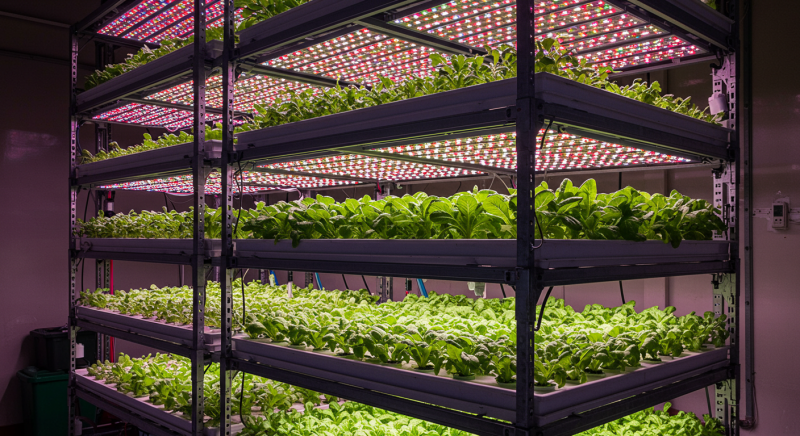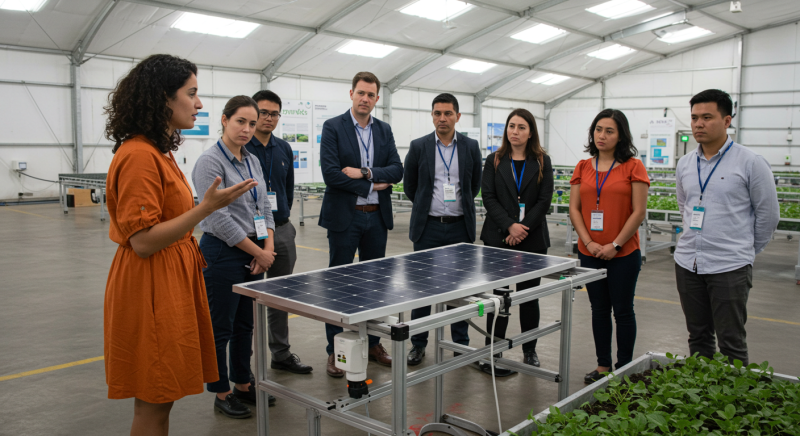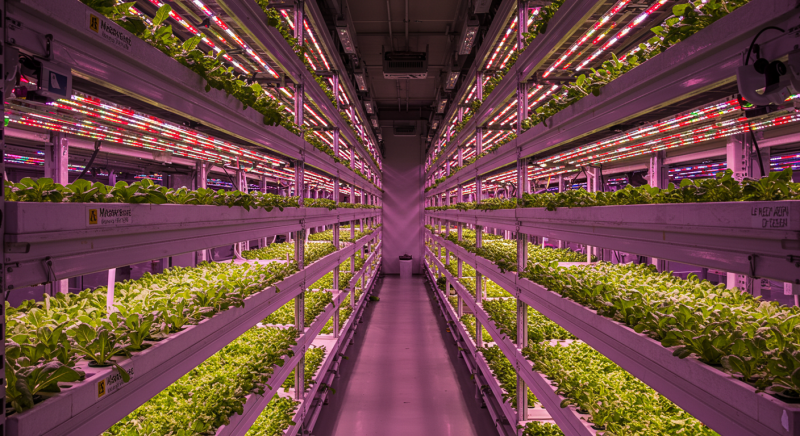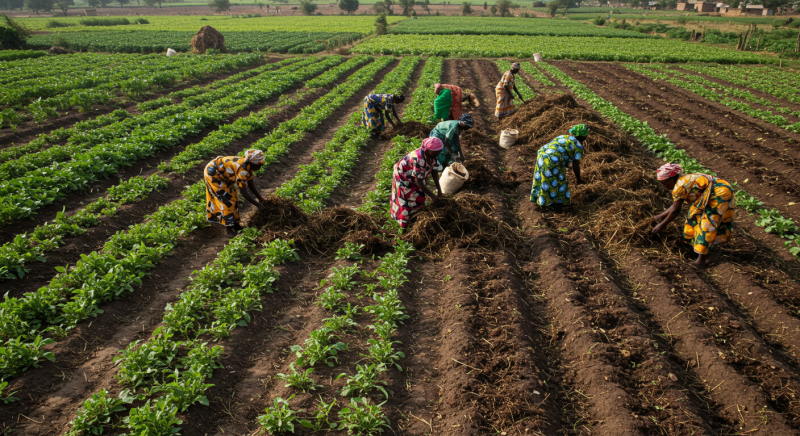The Urgency of Cultivating a Sustainable Future
In Nigeria, where over 9 million people grapple with food insecurity and 40% of harvests rot before reaching markets, sustainable agriculture isn’t just a trend—it’s a lifeline. Smallholder farmers, often women, battle climate shocks, land degradation, and scarce resources. Yet, beneath these challenges lies an untapped opportunity: Nigeria’s sustainable agriculture sector is poised to become a $40 billion market by 2030. For investors, this isn’t just about profit; it’s about transforming lives and ecosystems. Here’s how businesses can bridge the gap between purpose-driven innovation and investor interest. Investor Outreach for Sustainable Agriculture Business in Nigeria
Key Takeaways
-
Market Potential: Nigeria’s organic farming sector grew by 24% in 2023, while vertical farming startups are reducing urban food waste by 60%.
-
Government Incentives: Policies like NATIP and partnerships with the African Development Bank offer tax breaks and grants for sustainable projects.
-
Tech-Driven Solutions: Precision agriculture tools and hydroponics are attracting venture capital, with startups like Releaf Africa securing $370k in funding.

Why Nigeria’s Sustainable Agriculture Sector is Ripe for Investment
Nigeria’s sustainable agriculture sector is a goldmine for strategic investor outreach for sustainable agriculture business in Nigeria, blending urgent demographic needs, policy-driven incentives, and climate-resilient innovation. Below, we unpack the data-driven opportunities that make this sector a magnet for global capital.
1. Demographic Demand Meets Explosive Market Growth
Nigeria’s population, projected to surpass 400 million by 2050, faces a staggering annual food production deficit of 59 million metric tons. Urban centers like Lagos, which imports 90% of its vegetables, highlight the critical need for vertical farming and organic produce solutions. Startups like Lushly Agric Limited are pioneering hydroponic systems to grow leafy greens locally, slashing transportation costs and reducing urban food waste by 60%.
The organic farming sub-sector expanded by 24% in 2023, fueled by rising health awareness and premium export markets. Crops like organic hibiscus, ginger, and Fair Trade-certified cocoa are in high demand globally, with Nigeria’s palm oil industry alone projected to hit 85 billion by 2029. 40 billion market potential by 2030 represents a rare alignment of profitability and societal impact.
2. Government Policies and Financial Incentives
Nigeria’s National Agricultural Technology and Innovation Policy (NATIP) offers tax holidays, zero import duties on farming equipment, and 75% credit guarantees for sustainable ventures. Complementing this, the African Development Bank’s $2.2 billion agro-processing initiative is building infrastructure across 28 states to curb post-harvest losses and add value to raw produce.
The Nigeria Agricultural Development Fund (NADF) further de-risks investments with low-interest loans and guaranteed produce offtake agreements, ensuring market stability for smallholders. These frameworks create a low-barrier entry for investor outreach for sustainable agriculture business in Nigeria, particularly in cassava processing, organic fertilizer production, and solar-powered irrigation projects.
3. Climate Resilience as a Profit Driver
With 350,000 hectares of arable land lost yearly to desertification, sustainable practices are no longer optional. Startups like Jaress Agriculture Finance are empowering women farmers with microloans for drought-resistant seeds, which have reduced crop failure rates by 40% in northern states. Similarly, precision irrigation systems and AI-driven soil health monitoring tools are boosting yields by up to 45% in drought-prone regions.
Climate-smart agriculture (CSA) models, such as agroforestry and solar-powered cold storage, align with global ESG mandates, attracting venture capital and impact funds. For example, vertical farms in Lagos use IoT sensors to cut water usage by 70%, a key selling point for ESG-focused investors.
4. Export Opportunities via Regional Trade Integration
The African Continental Free Trade Area (AfCFTA) positions Nigeria as a gateway to 1.3 billion consumers, with organic and processed goods like sesame, shea butter, and hibiscus in high demand. Initiatives like the 2025 Agri-Investment Trade Mission (ATIM2025) target 30millioninsustainablericemillingand25 million in eco-friendly palm oil refining, creating lucrative export corridors.
Blockchain-enabled traceability systems are also gaining traction, allowing investors to verify the ethical sourcing of organic ginger or cocoa for European and U.S. markets. This export potential strengthens the ROI narrative for investor outreach for sustainable agriculture business in Nigeria, blending premium pricing with scalable impact.
5. Youth and Women-Led Innovation
Nigeria’s youth demographic—60% under 25—is driving agri-tech innovation through platforms like Farmcrowdy, which connects smallholders to fintech solutions and real-time market data. Urban vertical farms led by young entrepreneurs are redefining food security in cities like Abuja and Port Harcourt, while hydroponic training hubs are nurturing a new generation of agripreneurs.
Women, who constitute 70% of smallholder farmers, are spearheading organic cooperatives. Programs like the Female Farmers Advancement Program (FFAP) link female-led farms to premium buyers, with ventures reporting 30% higher yields through compost-based methods. Gender-inclusive models not only amplify social impact but also attract impact investors seeking diversified portfolios.
Strategic Positioning for Long-Term Growth
From NATIP’s tax breaks to AfCFTA’s trade corridors, Nigeria’s sustainable agriculture ecosystem is engineered for resilience and scalability. Investors engaging in investor outreach for sustainable agriculture business in Nigeria can leverage tech-driven solutions, demographic tailwinds, and policy incentives to unlock transformative returns. The sector isn’t just about profit—it’s a gateway to food security, climate action, and generational wealth creation.

Strategies for Effective Investor Outreach for Sustainable Agriculture Business in Nigeria
Crafting a winning investor outreach for sustainable agriculture business in Nigeria requires a blend of compelling storytelling, strategic partnerships, and tech-driven transparency. Below, we explore actionable tactics to attract and retain investors in organic farming, vertical farming, and climate-resilient initiatives.
1. Build Data-Driven Narratives with Local Relevance
Investors prioritize ventures that merge financial returns with measurable impact. For example, startups using IoT sensors to monitor soil health in Nigeria’s Sahel region can showcase real-time data on yield improvements and water conservation. Highlight metrics like “cost per hectare saved from desertification” or “carbon emissions reduced per ton of organic produce.”
A Lagos-based vertical farm reduced post-harvest losses by 60% using hydroponics—a story that resonates with investors seeking scalable solutions to urban food insecurity. By framing your investor outreach for sustainable agriculture business in Nigeria around localized success stories, you bridge the gap between global ESG goals and on-the-ground impact.
2. Forge Public-Private Partnerships (PPPs) with Clear ROI Pathways
Collaborate with initiatives like Nigeria’s National Agricultural Technology and Innovation Policy (NATIP), which offers grants for solar-powered irrigation and organic input production. Partnering with state-backed programs not only de-risks projects but also signals credibility to investors.
For instance, a cassava processing venture in Ogun State secured $500k in blended financing by aligning with the African Development Bank’s agro-industrial zones. Emphasize how PPPs streamline regulatory hurdles and provide access to infrastructure, making your investor outreach for sustainable agriculture business in Nigeria more attractive.
3. Integrate Cutting-Edge Technology for Transparency
Vertical farming startups in Abuja use blockchain to track produce from seed to supermarket, appealing to ESG-focused investors demanding ethical supply chains. Similarly, AI-powered platforms predicting rainfall patterns help drought-prone communities in the North optimize planting cycles, reducing crop failure risks by 35%.
Showcase how your tech stack—whether drone-based land mapping or mobile apps connecting farmers to markets—enhances efficiency. Investors gravitate toward ventures that solve systemic challenges, like Nigeria’s $12 billion annual post-harvest losses, through innovation.
4. Highlight Scalability and Replicability Across Regions
Investors seek models that can grow beyond pilot phases. A modular vertical farming system in Port Harcourt, for example, expanded from 50 to 500 units in two years by adapting to varying urban spaces. Similarly, organic cooperatives in Kaduna replicated compost-training programs across 15 villages, tripling membership.
Frame your investor outreach for sustainable agriculture business in Nigeria around scalable frameworks, such as franchise models for solar dryers or drip irrigation kits. Demonstrate how a $1 million investment could impact 10,000 smallholders versus 500, emphasizing multiplicative returns.
5. Leverage Community Impact as a Market Differentiator
Women-led cooperatives producing organic shea butter in Niger State increased household incomes by 200%, a statistic that resonates with impact funds. Projects restoring degraded land in Sokoto not only boost crop yields but also align with global carbon credit markets.
Quantify social outcomes: “Every $10k invested trains 100 farmers in climate-smart techniques” or “X tons of CO2 sequestered annually.” This human-centric approach strengthens your investor outreach for sustainable agriculture business in Nigeria, positioning it as a catalyst for both profit and social equity.
6. Utilize Digital Platforms for Targeted Engagement
Webinars featuring Nigerian agri-tech founders, virtual farm tours, and LinkedIn campaigns highlighting yield improvements can captivate global investors. Platforms like AgriInvest Nigeria connect startups with angel investors, while crowdfunding initiatives for solar cold storage units have raised $250k in 90 days.
Tailor your investor outreach for sustainable agriculture business in Nigeria to digital-savvy investors by sharing bite-sized success videos, infographics on market growth, and live Q&As with farmers.
Case Studies: Success Stories in Nigerian Sustainable Agriculture
-
Agribuiz Without Borders: Founded by Oluwayemisi Adesina, this organic farming initiative trained 200+ farmers during COVID-19, linking them to premium markets in Lagos. Their “Veggie Challenge” boosted yields by 30% and reduced chemical use by 95%.
-
Ecofarms and Agroservices Ltd: This Abuja-based company integrates conservation agriculture with solar-powered processing units, attracting $10k from the Land Accelerator 2023.
Navigating Challenges: Risks and Mitigation in Investor Outreach for Sustainable Agriculture Business in Nigeria
While Nigeria’s sustainable agriculture sector offers immense potential, businesses must proactively address risks to build investor confidence. Below, we dissect common hurdles in investor outreach for sustainable agriculture business in Nigeria and actionable strategies to turn challenges into opportunities.
1. High Initial Costs and Phased Scaling Solutions
Establishing vertical farms or organic processing units often requires significant upfront investment—up to $100,000 for modular hydroponic systems. For investors wary of capital-intensive projects, businesses can adopt phased scaling models. For example, a Lagos-based startup reduced initial costs by 40% using locally sourced materials for greenhouse construction, then reinvested profits into expansion. Government grants, such as NATIP’s 75% credit guarantees, further offset risks. Emphasizing long-term ROI, such as a 3-year payback period for solar-powered irrigation systems, strengthens investor outreach for sustainable agriculture business in Nigeria by framing costs as stepping stones to scalability.
2. Bridging Knowledge Gaps Among Smallholders
Many farmers lack training in organic certification or climate-smart techniques, creating operational bottlenecks. Mitigate this by partnering with NGOs like AfrONet to launch “train-the-trainer” programs. In Kano State, a cooperative trained 1,200 farmers in compost-making via mobile video tutorials, boosting adoption rates by 65%. Integrating digital tools like FarmAlert, which sends SMS updates on pest control, ensures continuous learning. For investors, showcasing a 20% yield increase post-training demonstrates how investor outreach for sustainable agriculture business in Nigeria can convert knowledge gaps into measurable growth.
3. Infrastructure Limitations and Localized Innovation
Unreliable electricity and poor road networks disrupt supply chains, particularly in rural areas. Startups like Ecofarms and Agroservices Ltd tackled this by deploying solar-powered cold storage units, reducing spoilage by 50% in tomato-producing regions. Similarly, decentralized processing hubs for shea butter in Niger State cut transportation costs by 30%. Highlighting such innovations in investor outreach for sustainable agriculture business in Nigeria reassures stakeholders that logistical challenges are surmountable with context-specific solutions.
4. Market Volatility and Diversified Revenue Streams
Price fluctuations for crops like cassava or maize can deter risk-averse investors. Businesses like Agribuiz Without Borders mitigated this by diversifying into value-added products—turning organic hibiscus into teas for export markets, which stabilized revenue despite raw material price swings. Forward-selling agreements with retailers, coupled with blockchain-enabled traceability to ensure premium pricing, further de-risk ventures. For investor outreach for sustainable agriculture business in Nigeria, emphasizing diversified income models transforms volatility into a competitive edge.
5. Climate Risks and Adaptive Farming Models
Erratic rainfall and desertification threaten crop yields, particularly in Nigeria’s arid north. Startups like Jaress Agriculture Finance address this by distributing drought-resistant sorghum seeds, which have a 90% survival rate in low-rainfall zones. Insurtech platforms like Pula Advisors also offer climate-indexed insurance, compensating farmers for weather-related losses. By embedding resilience into business plans, investor outreach for sustainable agriculture business in Nigeria can reframe climate risks as drivers of innovation.
6. Regulatory Complexity and Strategic Advocacy
Navigating land tenure laws and organic certification processes can delay project launches. Collaborating with state-backed initiatives like NATIP’s “Ease of Doing Agribusiness” desk streamlines approvals. A poultry venture in Oyo State reduced permit processing time from 6 months to 6 weeks by partnering with local agricultural development agencies. Proactive engagement with policymakers to shape farmer-friendly regulations also positions businesses as industry leaders, enhancing investor outreach for sustainable agriculture business in Nigeria.

Conclusion: Seeding Tomorrow’s Harvest Today
Nigeria’s sustainable agriculture sector is more than a market—it’s a movement. By aligning investor outreach with scalable solutions, transparent data, and community impact, businesses can unlock capital while driving a greener, more food-secure future. As the African proverb goes, “A tree does not grow in a day.” With patience and partnership, the seeds planted today will yield generational dividends.
FAQ
Q: What crops are most profitable for sustainable agriculture in Nigeria?
A: Organic staples like maize, soybeans, and vegetables, alongside vertical farming crops like lettuce and herbs, offer high returns due to urban demand.
Q: How can I access grants for sustainable farming projects?
A: Explore NATIP-funded programs, the African Development Bank’s CSA initiative, and competitions like the Land Accelerator.
Q: Are there success stories in Nigerian vertical farming?
A: Yes! Lagos-based startups like Lushly Agric use hydroponics to supply hotels and supermarkets, reducing spoilage by 60%.
External Sources:
read more
How to Successfully Navigate the Immigration Process from Nigeria: 5 Step-by-Step Guide
